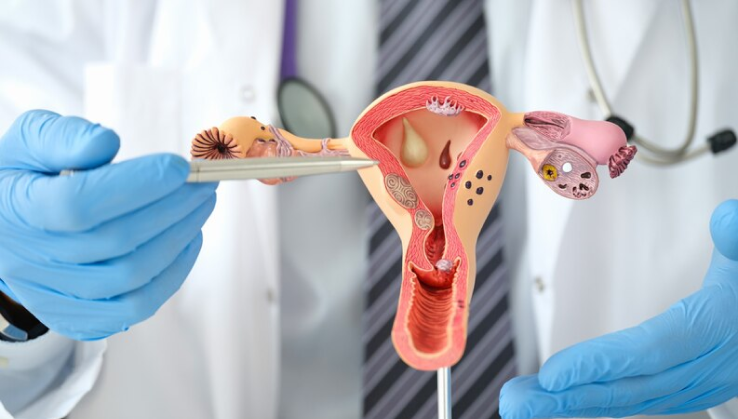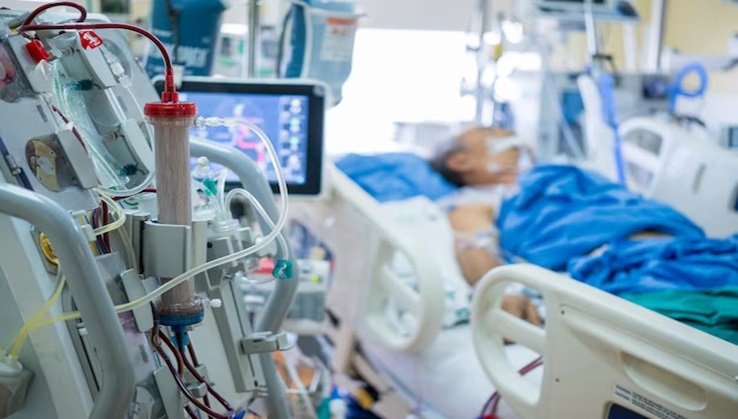Endocrinology
Hormones and Fertility: Understanding the Reproductive System
November 2023
Introduction
Fertility is a topic of great importance in many people's lives, whether they are actively trying to conceive or planning for future family building. At the heart of the process lies the complex and intricate interplay of hormones within the reproductive system. In this article, we will explore the critical role that hormones play in fertility, unraveling the processes that lead to conception and pregnancy.
The Reproductive Hormones
To understand fertility and the reproductive system, it's essential to be familiar with the key hormones involved:
- Gonadotropin-Releasing Hormone (GnRH)
- Source: Produced by the hypothalamus in the brain.
- Function: GnRH stimulates the anterior pituitary gland to release follicle-stimulating hormone (FSH) and luteinizing hormone (LH).
- Follicle-Stimulating Hormone (FSH)
- Source: Secreted by the anterior pituitary gland.
- Function: FSH promotes the growth of ovarian follicles in women and sperm production in men.
- Luteinizing Hormone (LH)
- Source: Also produced by the anterior pituitary gland.
- Function: In women, LH triggers ovulation, the release of an egg from the ovary, and stimulates the formation of the corpus luteum. In men, it promotes the production of testosterone.
- Estrogen
- Source: Mainly produced by the ovaries in women and the testes in men.
- Function: Estrogen regulates the menstrual cycle, promotes the development of secondary sexual characteristics, and plays a role in preparing the uterine lining for implantation.
- Progesterone
- Source: Produced by the corpus luteum in women and in smaller quantities by the adrenal glands in both sexes.
- Function: Progesterone is essential for maintaining a pregnancy and preparing the uterine lining for implantation.
- Testosterone
- Source: Secreted by the testes in men and, to a lesser extent, by the ovaries in women.
- Function: Testosterone is vital for sperm production in men and contributes to libido in both men and women.
The Menstrual Cycle
Understanding the menstrual cycle is fundamental to comprehending fertility and the role of hormones. The menstrual cycle in women typically spans 21 to 35 days, with two main phases:
- Follicular Phase
- Initiation: The cycle begins with menstruation, and the hypothalamus releases GnRH.
- Function: FSH and LH levels rise, stimulating the development of a mature egg in one of the ovaries.
- Ovulation: As estrogen levels peak, they trigger LH to surge, leading to the release of the mature egg from the ovary.
- Luteal Phase
- Formation of Corpus Luteum: The remnants of the follicle form the corpus luteum, which secretes progesterone.
- Function : Progesterone prepares the uterine lining for potential implantation and maintains a pregnancy.
Hormones and Fertility
Hormones play a central role in fertility, influencing:
- Ovulation: Hormones like FSH, LH, and estrogen are critical for the release of eggs.
- Sperm Production: Hormones like FSH and testosterone regulate sperm production in men.
- Uterine Lining: Estrogen and progesterone ensure that the uterine lining is receptive to embryo implantation.
- Sperm Health: Hormonal balance is crucial for the quality and quantity of sperm.
Common Fertility Challenges
Hormonal imbalances, as well as various factors like age, health conditions, and lifestyle choices, can lead to fertility challenges. Common conditions include:
- Polycystic Ovary Syndrome (PCOS): A hormonal disorder that can cause irregular ovulation.
- Endometriosis: A condition in which tissue similar to the uterine lining grows outside the uterus.
- Male Factor Infertility: Problems with sperm production or function.
- Advanced Maternal Age: Fertility tends to decline with age, especially after 35.
Fertility Treatments
For those facing fertility challenges, various treatments and interventions are available, including:
- Ovulation Induction: Medications like clomiphene can stimulate ovulation.
- Intrauterine Insemination (IUI): Sperm is directly placed into the uterus to enhance fertilization.
- In Vitro Fertilization (IVF): Eggs are fertilized outside the body and implanted into the uterus.
- Hormone Therapy: Hormone replacement or supplementation may be used to address specific imbalances.
Conclusion
Fertility is a complex and remarkable process that depends on a delicate interplay of hormones within the reproductive system. Understanding the hormonal mechanisms involved can help individuals and couples make informed choices about family planning and seek appropriate guidance when facing fertility challenges. Whether you're actively trying to conceive or planning for the future, recognizing the role of hormones in fertility is a valuable step toward achieving your reproductive goals.


